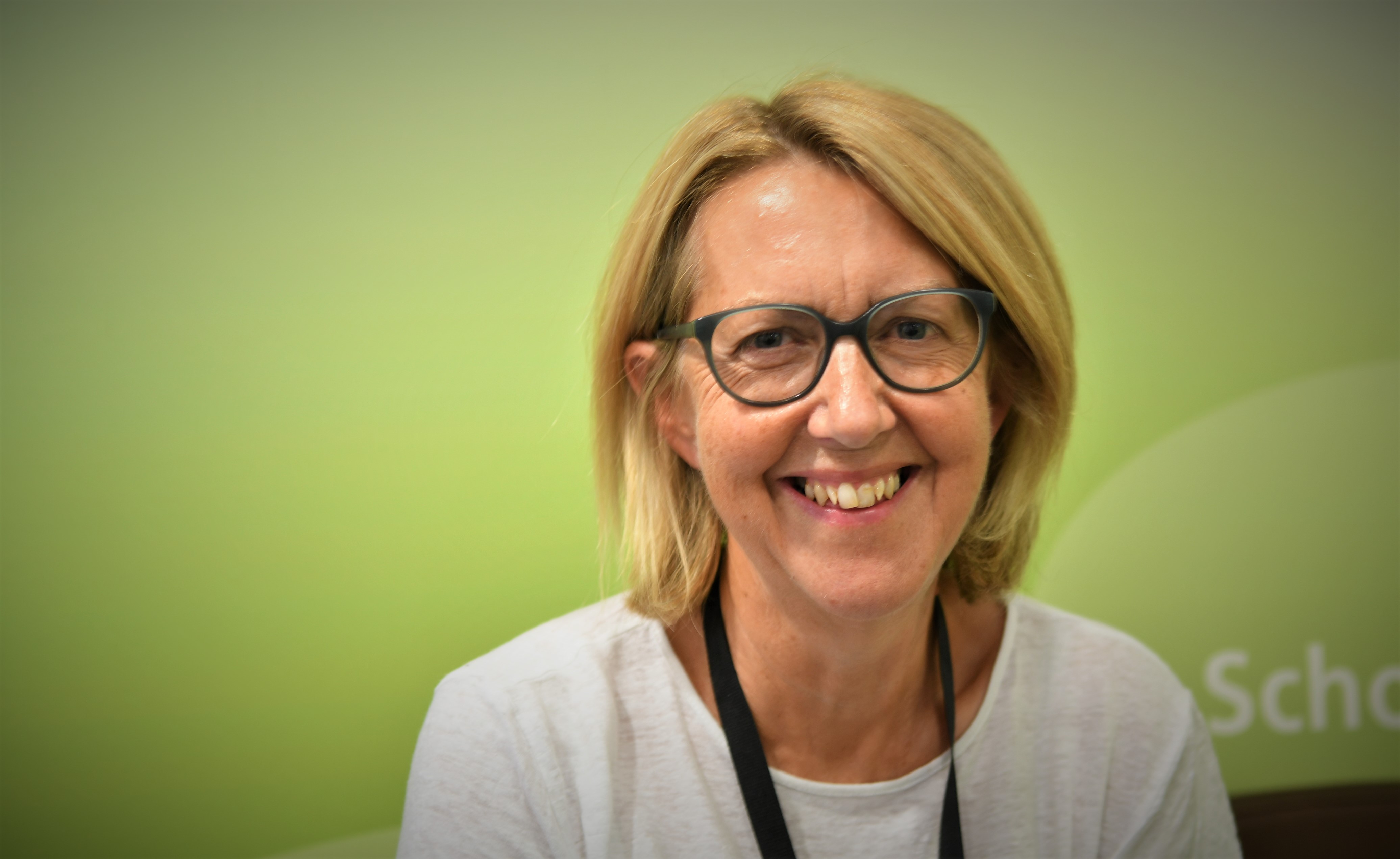
Opportunities to develop cohesive and collaborative health solutions, especially for older people, has brought Professor Gillian Harvey to Flinders University – building on the growing stature of the Caring Futures Institute.
Professor Harvey is a new Matthew Flinders Fellow and new research lead for the Better Systems theme within the Caring Futures Institute, bringing a wealth of experience and pragmatic applied research skills to the College of Nursing and Health Sciences.
Professor Harvey was previously at the Nursing School at the University of Adelaide, where she was the Head of Research and Research Training and led a research theme on Implementation Research and Practice.
Professor Harvey views the Caring Futures Institute as an area offering significant opportunities. Having come to South Australia from the University of Manchester in the UK during 2013 – re-connecting with Flinders University’s Professor Alison Kitson (Vice-President and Executive Dean, College of Nursing and Health Sciences), who she first met and worked with in the late 1980s – she explains that she has worked in varying roles, from a clinical background in nursing, to health management, to organisational studies.
Bringing this skill set together seemed a natural fit within the Caring Futures Institute, which Professor Harvey has viewed with great interest as it has taken shape and grown muscle in the past year. “I can see that the Caring Futures Institute has been getting significant traction – through its social media presence, its lectures and forums. It’s an ambitious program, but very timely in the way it is addressing the big challenges for future health care,” she says. “It makes good sense for me to come here. It’s a good home for all the aspects of health that I’m interested in.”
The applied research that Professor Harvey will focus on at Flinders aims to deliver the best, up-to-date evidence-based care possible – and often this means improving existing systems, especially within aged care delivery and preventing unnecessary hospitalisations for older people. “Delivering these solutions is complex, because it requires changing practise and behaviour to tackle multiple levels of the system and resolve the wicked existing problems in health care. We can’t just tinker with one aspect of the system and hope that it fixes things; we have to bring lots of people together, create partnerships and collaborations that ensure unity, and that all parts of the health care system join together.”
Professor Harvey has been creating bonds and teams in her work since arriving in Adelaide, and is now keen to make a further leap forward. “Very little research these days is about working with small teams. It’s about working across academia and industry, working across more than one hospital and health system and also involving clients. This is crucial, because from an older person’s perspective, they speak very eloquently about how they see areas of the health system that are fragmented, and can reveal the bits of the health care system that don’t join together. This is where our research starts, trying to best understand the experience of the older person who is a frequent user of the health system.”
New projects are growing out of this research, and Professor Harvey is committed to finding solutions. “That’s easier said than done, but I believe improved communication can resolve a lot of issues. It needs everyone going in the same direction. An advantage of doing this within South Australia is that it is a contained region, and that there is a familiarity among us all.”
Such closeness also means there is a lifestyle benefit to living in Adelaide that has delighted Professor Harvey. She says relocating to Adelaide has been a revelation. “It’s a fab place to live,” she offers with a smile.
Professor Harvey first came here on sabbatical from the University of Manchester in 2012, renting an apartment with her family at Henley Beach – and they fell in love with the relaxed pace of coastal living. An opportunity to move here permanently was embraced with enthusiasm by the family, although youngest son Charlie, who was only aged 7 at the time, was initially reluctant to leave friends. Now, aged 15 and studying in Year 10, he has thrived after engaging in new pursuits, and is a part of the State Development Cycling Squad. His sister, Alice, now 19, is studying psychology at UniSA.
“Our children have grown up in Adelaide having the types of opportunities they never would have had in the north of England, where we literally lived in the middle of nowhere,” says Professor Harvey. “We’ve all thrived living the outdoor life – although now I seem to spend a lot of my free time at the State Cycling Superdrome watching cyclists going round and round in circles.”
Now living with her family at West Beach, she’s a regular cyclist and is looking forward to cycling to Flinders University.
When she’s not working, Professor Harvey also likes to take walks on the beach with her family dog Ted, and is quite fond of baking – although she smarts at the quip from her colleague Dr Liz Lynch (who starts this week in the College of Nursing and Health Sciences, also as a Matthew Flinders Fellow) saying that she’s seen little evidence of Professor Harvey’s baking ability. “Well, I cook the cakes, but that doesn’t mean I share them outside of home,” she offers with a grin. Professor Harvey says she inherited a love of baking cakes from her mum, but concedes that she doesn’t have her mum’s fine cooking skills – although she does benefit from having a treasured collection of her mum’s recipes.

